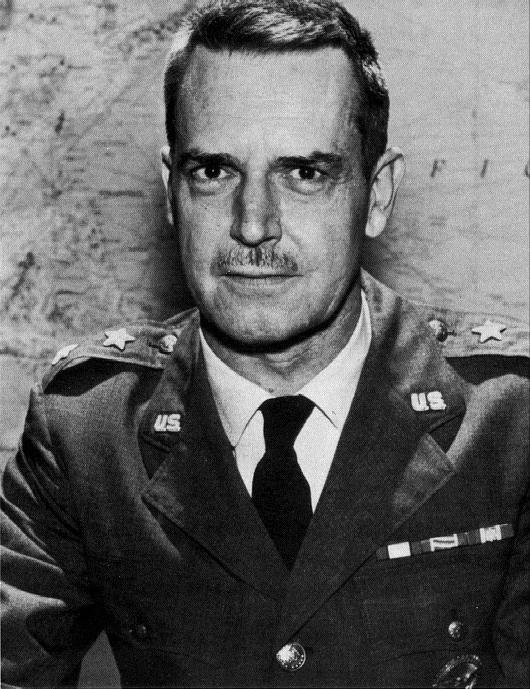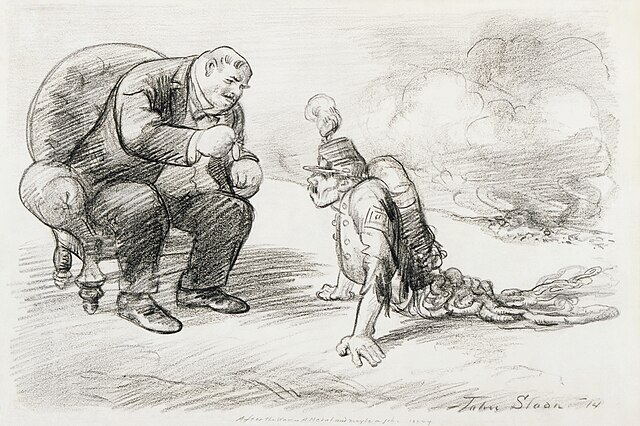
Nicole Foy joins us to discuss her recent reporting at ProPublica, including "We Found More Than 40 Cases of Immigration Agents Using Banned Chokeholds and Other Moves That Can Cut Off Breathing." "The Moment of Truth" with Jeff Dorchen follows the interview.
Help keep This Is Hell! completely listener supported and access bonus episodes by subscribing to our Patreon.
Please rate and review This Is Hell! wherever you get your podcasts. It really helps the show ascend the algorithm to reach new listeners.
Lungs
Welcome to the Moment of Truth: the thirst that is the drink.
Don't cook if you can't cook without filling the apartment with choking smoke. What are you doing, burning oil with hot chili flakes in it? I'm gagging over here. I can't inhale without coughing.
It's your sausages. I don't think you know what you're doing with those. They're raw, you should steam them first. Then you wouldn't have to char them beyond recognition like a dog found after a house fire.
I think you punched a whole in our house's lung. Do you hear that whistling? No, that's not me. I don't know what it is. It started as you were cremating your dinner.
Lungs are so over. Lungs are finished, lungs are done. I sent mine on the road to perdition when I swept up some kind of cinderblock dust that had accumulated since the 1950s on a concrete floor in a toxic back room of the type connected to so many "garden" apartments in Wicker Park. "Garden Apartment" is the ghastly sardonic moniker, or "sardoniker," for a basement with little windows above head-height providing insufficient light or ventilation for terrestrial life forms to thrive. People who live in them go blind, all pigment drains from their skin, and they walk on the ceiling, having no reference for what is up and what is down.
The chamber filled with a fog of chalk particulate, and I inhaled it for an hour, hacking up cakey phlegm for another four hours afterward. I was also a pack-a-day smoker, back in the days when even a part-time ESL teacher could afford a pack a day.
Every time you cook, my lungs fill with fluid, and it takes days of hacking for me to breathe without a coughing fit. I'm underwater, here. I can't breathe underwater. I can't breathe water. My pipes are not adapted to it. I'm not a bearded fountain seamonster. But you are turning me into one with your mustard gas cuisine.
We're burning everything. Plastic, coal, mercury, all kinds of viscous syrups, French- toast-scented sickly-sweet wet garbage. One day soon the entire planet will be smoke. We'll be indistinguishable from the atmosphere. All will be languid formlessness. We'll hover without boundaries, black ghosts on black vapor strata.
We're burning glass, or just blowing glass dust into the air. We're burning water. We're burning chlorine. We have men strapped into harnesses, marching armies of men, roaring motors on their backs spewing clouds of carbon monoxide and half-combusted kerosene,... read more
On This Day in Rotten History...
In 1903 – (104 years ago) – an enormous limestone shelf more than half a mile wide, and weighing some ninety million tons, broke away from the side of Turtle Mountain and came crashing down on the outskirts of a coal-mining town called Frank, in Canada’s Northwest Territories. Turtle Mountain was known not only for its rich coal veins, but for its periodic shakes and tremors. The local Blackfoot Indians called it “the mountain that moves,” and had long avoided camping anywhere near it. The landside destroyed houses, businesses, mine buildings, and more than a mile of railroad track. The noise was heard more than a hundred miles away. At least seventy to ninety people were killed, but that number may have been higher, because it’s believed that an unknown number of itinerant hobos looking for work had pitched camp in the area. Experts said the landslide was triggered by mining activity inside the unstable mountain, but the mine owners denied any responsibility. They quickly rebuilt the damaged railway, and the coal mine stayed in operation for another fourteen years.
In 1991 – (26 years ago) – Bangladesh was hit by one of the most deadly tropical cyclones on record. A twenty-foot storm surge flooded the highly populated coast, which was also whipped by winds above 120 miles an hour for more than twelve hours. The storm killed an estimated 138 thousand people, destroyed about a million homes, and left more than ten million people homeless.
In 1992 – (25 years ago) – a jury acquitted four Los Angeles police officers of using excessive force in their arrest of Rodney King, who had led them on a high-speed freeway pursuit after failing to pull over for a traffic stop. King’s arrest had been captured on video, and the footage had received widespread play on cable TV for more than a year. In it, one could see the police repeatedly kicking King and pounding on him with clubs as he lay immobilized on the roadway. Even LA police chief Daryl Gates had expressed shock at what he saw on the tape, as had police and community leaders nationwide. In the face of such blindingly obvious evidence of police brutality, the jury’s acquittal of the four cops sparked immediate outrage across the country — and especially in South Central LA, where riots broke out and continued over the next several days. Troops from the... read more

Listen live from 9AM - 1:00PM Central on WNUR 89.3FM / stream at www.thisishell.com / subscribe to the podcast
9:15 - Historian Timothy Snyder examines our present for signs of tyranny in our future.
Timothy is author of the new book On Tyranny: Twenty Lessons from the Twentieth Century from Tim Duggan Books.
10:05 - Live from St. Petersberg, writer Yasha Levine reports on hacking hysteria and myth of cyber security.
Yasha wrote the article From Russia, With Panic for The Baffler.
11:05 - Peace activist Kathy Kelly reports on the US-supplied slaughter of innocents in Yemen.
Kathy wrote the piece The Shame of Killing Innocent People for Common Dreams.
11:35 - The Oakland Institute's Anuradha Mittal explores the military occupation of land in post-war Sri Lanka.
The Oakland Institute just published the report Justice Denied: A Reality Check on Resettlement, Demilitarization and Reconciliation in Sri Lanka.
12:10 - Julia Buxton examines the persistently dysfunctional nature of Venezuela's anti-Chavista opposition.
Julia wrote the article Situation Normal in Venezuela: All Fouled Up for NACLA Report on the Americas.
12:45 - In a Moment of Truth, Jeff Dorchen eulogizes one of his organs.
Organ TBD, BTW.
White is Black, Up is Down
Welcome to the Moment of Truth: the thirst that is the drink.
What could be better than a white guy discussing black female identity? Well, if the white guy is THIS white guy, there's nothing better. It's gonna be the most entertaining act of hubris you've ever been treated to. Tell all your black female friends!
Look, I don't know anything about what it's like to be a black woman, except what my black woman friends tell me, and unless they're lying, they're always having a wonderful time! Who would you rather be, Serena Williams, who won a tennis championship while pregnant, or Paul Prudhomme, who is dead from being really fat? Who would you rather be: Beyonce, or that Nazi who got sucker-punched on camera while explaining the significance of Pepe the Frog? I think we can all understand why Rachel Dolezal, the crazy white woman who fooled the Spokane NAACP into thinking she was black for years, chose to identify as a black woman rather than as Dom DeLouise or Gilbert Godfried or Bill O'Reilly.
I bring up the strange case of Rachel Dolezal in response to a recent article in the Seattle alternative weekly, The Stranger, by Ijeoma Oluo. Oluo is a feminist journalist who lives in Seattle and has published widely. She's also a black woman. You'd think she'd be the perfect candidate to interrogate Dolezal's pretensions. And she was!
I'm going to try to sum up Oluo's article briefly. Rachel Dolezal is the worst possible white person to claim she gets to decide whether or not she's black. She first became enamored of blackness by looking at pictures in National Geographic, while her brother was taking a break from using them to masturbate.
Dolezal, embarrassingly outed as white on television, has no shame whatsoever. She's in fact very prickly toward those who question her about anything. I guess you never get used to people treating you like a psychotic liar, even after you've been exposed as one in the most public way possible. Dolezal, instead of resigning herself to the fact that her public performance as a black woman is over, has doubled-down, renaming herself Nkechi Amare Diallo. Nkechi happens to be Oluo's sister's first name. Now it's personal. I mean, even more personal.
Oluo approaches Dolezal as if the latter were a childish poseur, very much as I thought of a couple I once read about who claim to be living a life of Victorian simplicity in their contemporary suburban... read more
On This Day in Rotten History...
In 1915 – (102 years ago) – as World War I combatants faced off in the late afternoon near the hamlet of Gravenstafel in western Belgium, the German troops released more than 170 tons of chlorine gas that swept in a thick yellow cloud over the opposing front line of French and colonial Moroccan and Algerian soldiers. Being heavier than air, the gas quickly settled into the trenches, killing hundreds of French troops within minutes, and forcing thousands more to come staggering out into the open, gasping and choking in agony, as they were mowed down in a barrage of German gunfire. The Germans relied on prevailing winds to carry the gas away from themselves and toward their enemies, but many of them were also killed and injured by their own weapon. As fighting continued over the following weeks, the French troops tried to protect themselves by urinating into handkerchiefs which they tied over their faces, so that the ammonia in their urine could neutralize the chlorine poison. Months would go by before they were issued proper gas masks. More than 120,000 troops were killed or wounded or went missing in this bloodbath, known as the Second Battle of Ypres. The British, French, and Americans all expressed outrage at what they called the Germans’ cowardly form of warfare — but by the end of the war, they too had built up stockpiles of chemical weapons, and had used them.
In 1992 – (25 years ago) – residents in a central section of Guadalajara, Mexico, awoke to a heavy, nauseating stink that had risen from manholes in their streets for several days. The people also noticed that the water from their faucets smelled like gasoline, and caused stinging in the eyes and throat. Shortly after 10 a.m. that day came the first of a series of sewer explosions that continued for hours — blowing up streets, destroying buildings, throwing cars into the air, and starting fires that burned all day. Amid the panic and chaos of the emergency evacuation, firefighters warned people across the city not to strike matches or light their stoves. Residents in unaffected neighborhoods hurried to remove manhole covers, hoping that any gas in their sewers would escape without igniting. By the time the crisis was over, up to a thousand people were dead, hundreds more were injured or missing, and some fifteen thousand people were left homeless. Authorities later blamed the... read more

Listen live from 9AM - 1:00PM Central on WNUR 89.3FM / stream at www.thisishell.com / subscribe to the podcast
9:15 - Live from Ankara, Max Zirngast explains what Turkey lost in Erdoğan's referendum victory.
Max is co-author of the recent articles Voting on Dictatorship and Ten Thoughts on the Turkish Referendum for Jacobin.
10:05 - CIP Americas Director Laura Carlsen reports from the moving migrant-rights protest, Caravan Against Fear.
Laura will be reporting somewhere from Texas, follow her and the Caravan Against Fear on their Facebook page.
10:35 - Live from Paris, Philippe Marlière examines Mélenchon's shift from leftist to populist in the French elections.
Phillippe wrote the article French tragedy or farce: the 2017 presidential election for openDemocracy.
11:05 - Psychologist Renee Engeln discusses beauty sickness in the media and minds of girls and women.
Renee is author of Beauty Sick: How the Cultural Obsession with Appearance Hurts Girls and Women from Harper Collins.
12:05 - Journalists Jessica Bruder and Dale Maharidge explain how they became Snowden's (unknowing) data smugglers.
Jessica and Dale wrote the Harper's cover story Snowden’s Box: The human network behind the biggest leak of all.
12:45 - In a Moment of Truth, Jeff Dorchen whitewashes Ijeoma Oluo's article on Rachel Dolezal in The Stranger.
Not touching this one. Please @ Jeffy.
F For Fake
Welcome to the Moment of Truth: the thirst that is the drink.
I'm Brad Pitt – if he'd've kept it real. This is what he would've looked like, like a little round furry bald-headed Jewish guy. Is this what you want?
You want it real? You think "real" is so great?
You want the unvarnished truth? You don't want that. You can't handle the unvarnished truth. You know why they varnish the truth? Cuz without varnish it looks like shit.
"Keep it real" means, "keep doing the same dumb stuff you and your friends have been doing forever that keeps you from improving your lives." When a junkie gets clean, the rest of the junkies who are still shooting up go, " He didn't keep it real."
What is reality? The Existentialists, Jean Paul Sartre and Albert Camus and those guys, they said, "Let's take a good look at reality. Strip away all the fantasy, the gods, the invented things like money and laws and some jury-rigged 'purpose' to life. Strip it all down, down to the bones, like a gut rehab. What do you have? Bare timbers. Just two-by- fours and a plywood sub-floor and some pipes and junction boxes and wires. It's crap. It's gonna take work."
You're not born into a fully built residence. You construct that. Before you do, you're just hunk of mortadella in a crib. Just a loaf of meat and bones, wiggling around, taking in light and sound and smells, a barrage of chaotic sensations. It's utter unvarnished nonsense. You pick out what to pay attention to. You create a coherent world and a coherent self.
And a lot of people are incompetent at that. Some people's identities are so poorly slapped together that they fall apart at the first contradiction. They go crazy. So if you have a coherent world and self, thank your lucky stars you're such a good fabulist. Be grateful you're a good storyteller. Because it's all a made-up story. It's all fake, and god bless it.
All we are is dust in the wind. You might be, say, a pediatrician, and help sick children, but in less than two or three generations, everything you've done will have turned to dust. And in the long run, we'll all be swallowed by the sun. That's reality, no matter what story you tell yourselves. Sorry to break it to you like this. All your suffering and joy, it's like grasping the wind. All we are is dust in the wind.
Life's a game. All the world's a stage. It's a tale told by an idiot! A fuckin idiot!
Many belief systems actually take this... read more



